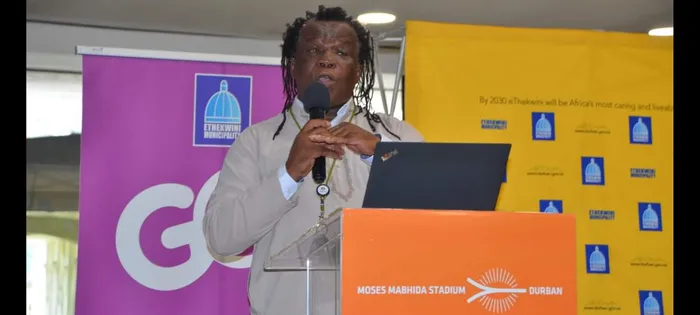Plans to improve Durban’s public transport system

Plans are in place to take Durban’s public transport to the future. Thami Manyathi, head of eThekwini Transport Authority, said The Tactical Adjustment Roadmap will see a smooth transport network, automated fare collection and a single smart card ticketing system being implemented in the future.
It’s ready, set, go for Durban’s Tactical Adjustment Roadmap to improve public transport.
A new, transformed public transport system is on the cards for eThekwini commuters as the city engages with the taxi and bus operators on the Tactical Adjustment Roadmap that will see a seamless transport network, automated fare collection and a single smart card ticketing system being implemented in the future.
eThekwini Municipality met with taxi and bus operators last week, to present the Tactical Adjustment Roadmap, a revised approach to implement GO!Durban, the city’s Integrated Public Transport Network.
It involves optimising routes and integrating services of 16 existing citywide contracts currently running in the city to create seamless network in line with the Integrated Public Transport Network (IPTN).
This includes the C3 route, Priority Feeder contracts, existing contracts, and the Inner-City Distribution System. This approach requires the taxi and bus industry to formalise their business operations leading to an improved public transport system, said Mr Thami Manyathi, head of eThekwini Transport Authority.
“The Tactical Adjustment Framework aims to support the progressive transformation of the existing industry, maximise the supply of passengers to the IPTN corridors and ensure a single ticketing solution is applied across all road-based modes of public transport in the eThekwini region, said Mr Manyathi.
“The commencement of Priority Feeder Route contracts is expected to be in June this year, while 12-month contracts are expected to be finalised by September, seven year contracts by October 2025 and five-year contracts by November 2032. The city is committed to working with the transport operators on the implementation of this Tactical Adjustment framework.”
Deputy chairperson of the Human Settlements and Infrastructure Committee, Bheki Ngwengwe said for an Integrated Public Transport Network such as GO!Durban, the city is required by law under the National Land Transport Act of 2009 to integrate the existing operators of the mini bus taxi and bus industries into the new system.
“The City could not achieve an agreement with operators despite numerous engagements and negotiations in the past. We have since amended the approach of how to implement the programme, which we have found to be more acceptable and suitable across many stakeholders,” said Mr Ngwengwe.
He added that the new system requires that they move from being an informal business operation to a fairly sophisticated operation. The Tactical Adjustment contracts are complex and require adherence to things such as schedules, adopting different employment practices and general formal business practices.
“We are aware that this is a totally different world to the current practices, this is why we are conducting such engagements to support the sector during this significant transformation process,” he said.
